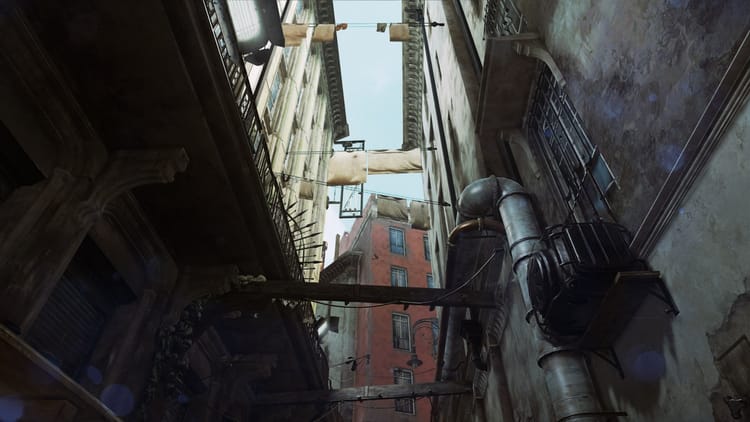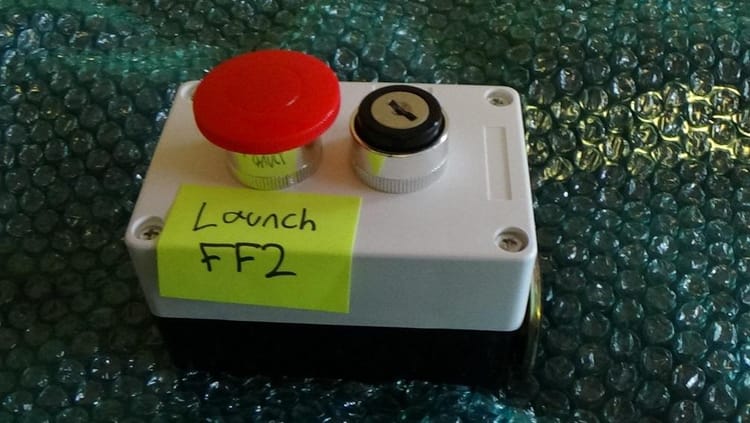Where Did The Fun Street Fighter Music Go?
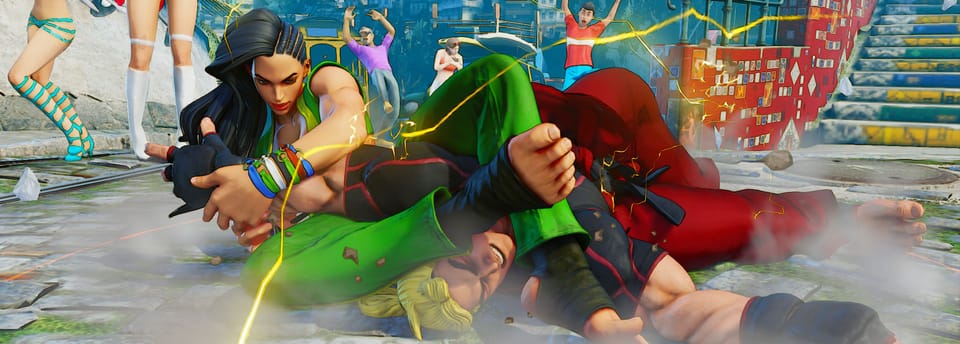
My anticipation for the recently released Street Fighter V probably came from a different place than most people. I’ve only ever really followed the series as an observer who watches tournament matches, and as a listener of the games’ soundtracks. For me, then, Street Fighter V’s release held two possibilities: new tournament material after eight years of Street Fighter IV (2008) and its iterations, and new music. Whatever you think of the mechanical changes and viability of certain characters, Street Fighter V is sure to offer a lot of the former for passive appreciators like myself. As far as the latter goes, there’s not much to say. Not much that’s positive, anyway. And that’s frustrating.
easily among the funnest music the medium has ever produced
The Street Fighter series once harbored some of the most electrifying and colorful music put to videogames, crafted by some of the industry’s best musicians. The now-iconic themes of characters like Ken, Guile, and Ryu from Street Fighter II (1991), for example, were written by Yoko Shimomura, the composer behind the upcoming Final Fantasy XV and the bizarrely beloved trainwreck that is the Kingdom Hearts series. There was also a willingness to musically experiment with the series’ stylistic identity. As much as I think Hideki Okugawa’s Street Fighter III: 3rd Strike (1999) soundtrack would be way better off if it were complemented by hip-hop lyrics, there is something to admire in the contrast between its gravelly, jazzy, drum-and-bass flavor and the clear melodic approach of Street Fighter II.
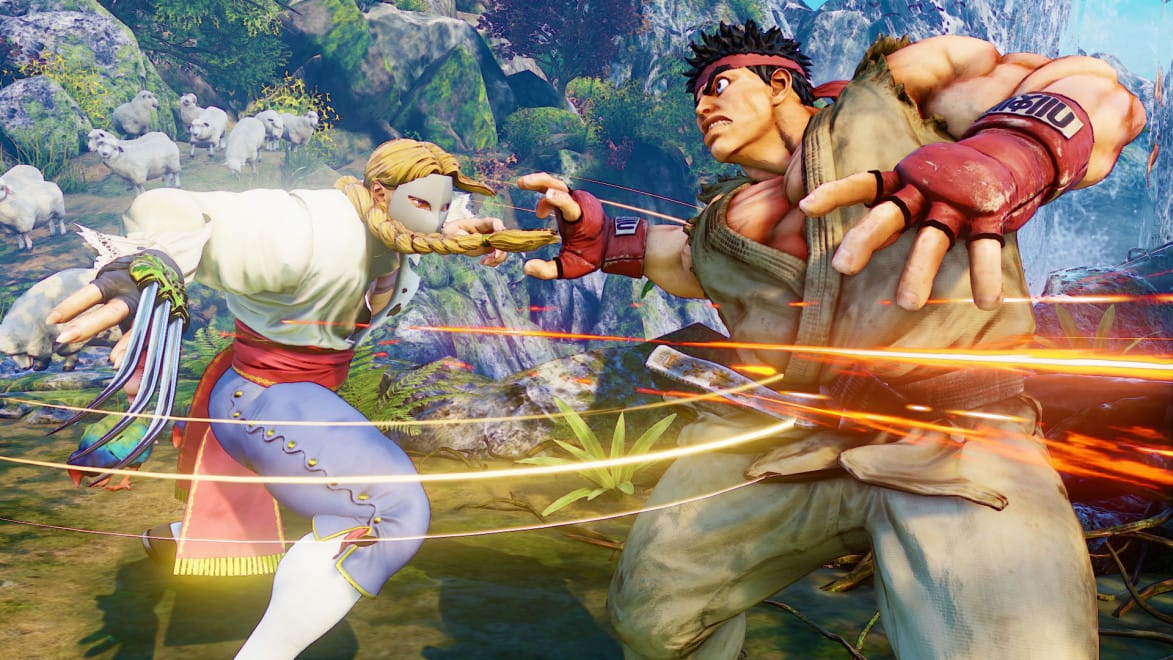
It’s unfortunate that the series hit a musical high point with the Street Fighter EX titles. These are the spin-offs nobody wants to play, at least on a professional level. The EX games precede Capcom really figuring out how to make a convincing leap from 2D to 3D; they don’t have the speed, precision, or bite of a game like 3rd Strike. This deficiency, plus the fact that the games were spin-offs to begin with, and phenomena such as Guile’s Street Fighter II theme becoming an internet meme, have combined to bury the EX soundtracks below the cultural surface.
Dig them up, though, and you’ll find a treasure trove. These scores composed by Shinji Hosoe, Ayako Saso —both of whom, along with Yousuke Yasui, composed what is secretly the best Mega Man soundtrack for Mega Man Network Transmission (2003)—Takayuki Aihara, and Yasuhisa Watanabe, overflow with vibrancy, weirdness, and humor. Theremin-like leads belt out lyrically and melodramatically, elastic slap basses bounce around, and oblique chords get themselves into the oddest positions. It’s easily among the funnest music the medium has ever produced.
Disappointing, but predictable
Street Fighter has always had an inherent element of humor, partly derived from its campy thematic dissonances. Just look at and compare the character designs—a stoic man in a karate gi matched against a green-skinned, shark-toothed,carrot-topped humanoid—or consider how the main antagonist’s criminal organization is called Shadaloo. The progressive deterioration of that element is disappointing. Now, the humor (if it can be called that) of Street Fighter music seems to be limited to boring, braggy, “promotional” vocal tracks—Street Fighter IV’s “Indestructible” and Street Fighter V’s “Survivor”—which are presented with an undeserved sobriety.
Disappointing, but predictable. When Capcom released Marvel vs. Capcom 2 in 2000, all reviewers could do in response to its joyfully irreverent lite-fusion soundtrack was angrily wonder why the composers complemented a goofy videogame—full of ridiculous musclemaniacs slamming one another sky-high—with goofy music. This might’ve been one of the interactions that helped to set Capcom on the course they are on now: the territorial and myopic portion of an audience (the fanatics, in other words) gradually influencing the movements of a creative body for the worse. Why are the themes for Ryu, Ken, or Vega in Street Fighter IV and Street Fighter V arrangements of their Street Fighter II themes? Because the hivemind has demanded it be so by fetishistically enshrining that entry, similar to The Legend of Zelda series and Ocarina of Time (1998). Any major deviation from that standard will be taken as a betrayal of the “franchise’s core principles.”
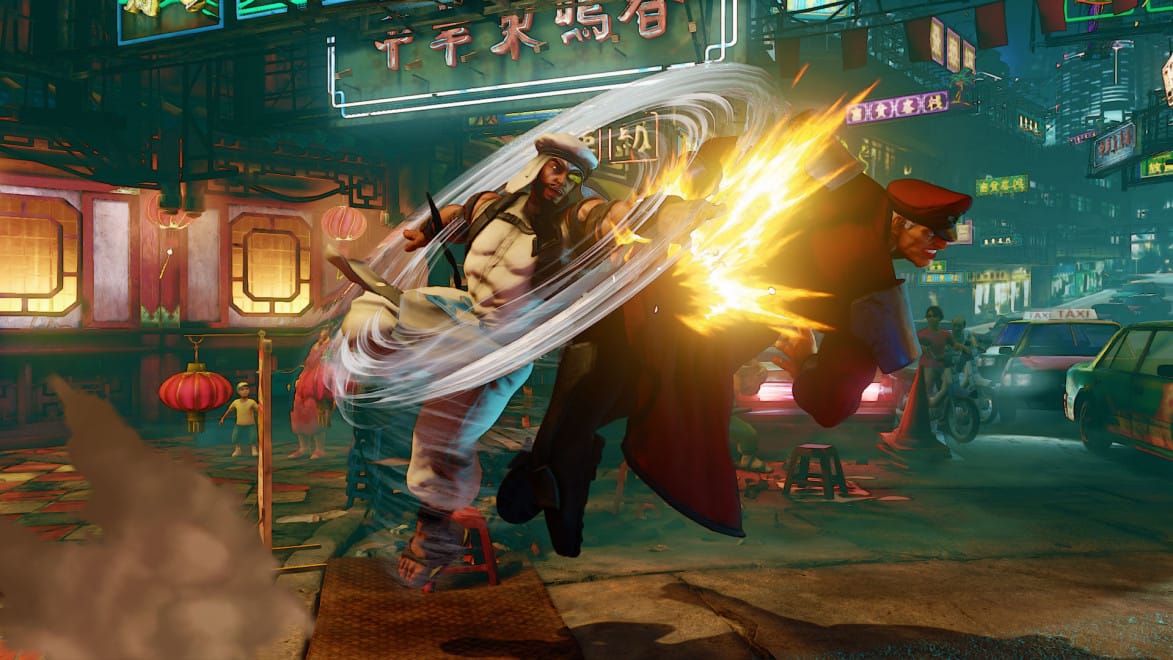
Street Fighter IV and V’s spiceless soundtracks are representative of something more depressing to me, though, and that’s the escalating westernization of the industry and its inferiority complex relative to cinema and popular culture in general. Japan’s videogames have always been obsessed with Europe and North America—the long-running Dragon Quest series, for example, has its indebtedness to western fantasy right in its name—but what made this obsession charming were the eccentricities and surprising combinations, the actually vital contrasts, that came from a culture playing with “exotic” elements. Ergo, Castlevania: Rondo of Blood’s (1993) upbeat synth-pop soundtrack, the colorful robustness of Dungeons and Dragons: Shadow Over Mystara’s (1996) character designs, or Earthbound’s (1994) peculiar interpretation of an American town.
As the medium has exploded in popularity and its big names have hailed increasingly rarely from Japan, many Japanese developers have either attempted to integrate themselves into that shift or compete with it by producing material that plays its westernness much more straightly. Capcom’s Dragon’s Dogma (2012), for example, takes more of its formal cues from Bethesda’s The Elder Scrolls IV: Oblivion (2006) than it does from Shadow Over Mystara (also by Capcom). And the soundtrack to a game like Castlevania: Lords of Shadow (2010)—Konami handed this one over to the Spain-based developer MercurySteam—exemplifies that aforementioned inferiority complex, intending to impress on the basis of sounding “like a movie score.” We hired a real composer and employed a real orchestra!
an aural swamp that seems to have been produced with the primary goal of being loud
Street Fighter V’s soundtrack isn’t as much an annoying attempt at cinematic gravitas (it is, a little) as it is the most conservative sort of populism, continuing where Street Fighter IV left off. Nearly every track is an obvious and embarrassing grab at commercially viable epicness: a synthetic orchestral ensemble, for the classiness, paired with electro/dubstep elements and maybe an electric guitar, for the coolness. It sounds like a standard playlist assembled from OCRemix’s tepid bowels, or library music used for the transitional parts of a television show about hot rods—not a fresh and powerful score for a mainstay series. And as bland as the melodies are, they’re made all the more forgettable by a scarcity of unique lead instruments and mixing that sounds as if the controls on the console were all left in the center positions.The result is an aural swamp that seems to have been produced with the primary goal of being loud.
Karin’s theme stands out for not trying to destroy your ears, and the brief appearance of a cute, bubbly mono-synth that actually complements its melody’s doodling contours. Its dated and flimsy violin synth takes up too much space, though, and just makes me wonder why Capcom isn’t hiring performers to play instruments that are trickier to emulate. A lot of people seem to like Rashid’s theme, but that’s because its cries of the character’s name set to dubstep easily appeal to an internet culture hungry for one-note memes that can be used in YouTube videos.
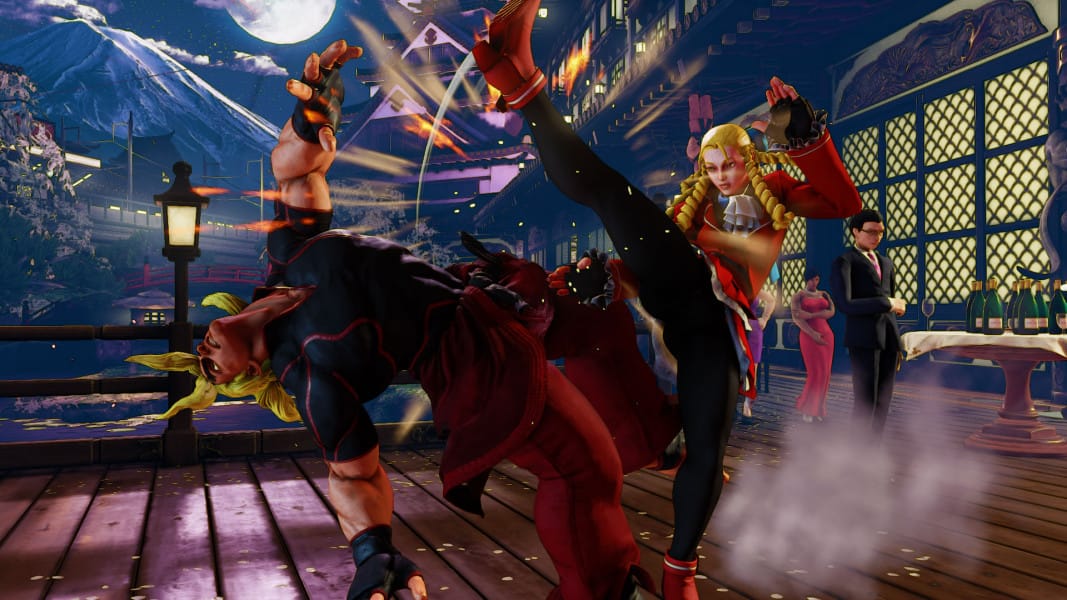
I see another missed opportunity here, and it’s that an unconventional and fun soundtrack might’ve actually been the push that I, and maybe a quiet minority, needed to get into Street Fighter V. It’s no exaggeration to say that I played Virtua Fighter 5: Final Showdown (2010) for as long as I did because it was possible to replace the default soundtrack with Virtua Fighter 3’s (1996). Music has always been an ingredient that’s convinced me to invest more of myself in a movie, show, or videogame than I otherwise would, or to even pay attention at all. I don’t want a videogame where I turn the music down and play my own on a pair of headphones. I want to develop a bond with something based on its native traits. I want to feel as enthused by as much of the game as possible.
For a while, videogames—especially those coming out of Japan—were the site of some of the most exciting musical developments, period. Free from the demands of radio, there was no real concern about the music’s presentability on a mass-cultural level. And when rendered in the vocal chords of arcade cabinets, consoles, and handhelds, Japanese composers’ reinterpretations of western musical forms were all the more alluring. Even after certain technological limits were outgrown, soundtracks like the Street Fighter EX games’ expanded on those eclectic values: hugely inspired by jazz fusion and Yellow Magic Orchestra, yet avoiding any neat or plain labels. In reflecting on Street Fighter V’s musical deficiencies, we can at least be compelled to highlight the preceding creativity before it’s entombed by an increasingly normalized canon.


